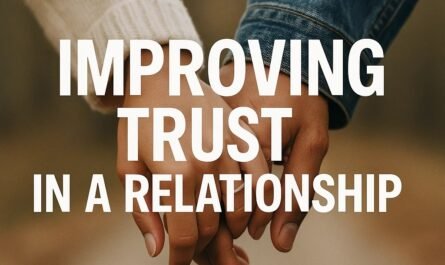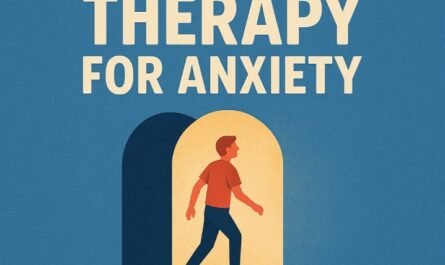Politics can feel like a never-ending rollercoaster—except you didn’t sign up for the ride.
One minute, you’re casually checking the news.
The next, you’re spiraling into frustration, anxiety, or straight-up rage.
Sound familiar?
Political stress is real. It’s affecting millions of people, draining mental energy, damaging relationships, and even causing physical symptoms. But the good news? You can stay informed without letting it destroy your peace of mind.
Let’s dive into how to cope with political stress and reclaim control over your mental health.
🧠 What Is Political Stress?
Political stress is the emotional, mental, and physical strain caused by political events, news, or discussions. It’s the feeling of being overwhelmed, angry, anxious, or helpless about the state of the world.
Common Signs of Political Stress:
- Constantly checking the news, even when it makes you feel worse.
- Feeling emotionally drained after political conversations.
- Struggling with anger, frustration, or helplessness about policies and leadership.
- Losing sleep over political concerns.
- Avoiding people because you fear political arguments.
Stress is a normal reaction, but when it starts affecting your mental health, relationships, and daily life, it’s time to step back and reset.
🔥 7 Ways How to Cope with Political Stress
1️⃣ Control Your News Intake (Without Sticking Your Head in the Sand)
Staying informed is important, but you don’t need 24/7 updates.
- Set news limits: Check updates once or twice a day.
- Avoid doomscrolling before bed—it wrecks your sleep.
- Stick to credible, non-sensational sources.
If a headline makes your heart race, take a breath before reacting. Not everything deserves your immediate energy.
2️⃣ Set Social Media Boundaries
Social media thrives on outrage, and political stress skyrockets when you’re glued to it.
- Unfollow accounts that fuel anxiety.
- Avoid comment section debates (they’re rarely productive).
- Use social media for action, not stress—follow organizations that inspire solutions.
Sometimes, the best move is logging off for a mental detox.
3️⃣ Focus on What You Can Control
Feeling powerless makes stress worse. Shift your energy to actionable steps:
- Vote in every election, not just presidential ones.
- Support organizations fighting for causes you care about.
- Engage locally—change often starts in your own community.
If national politics feels overwhelming, start small and build from there.
4️⃣ Protect Your Relationships
Political stress can strain friendships and family bonds. Here’s how to navigate tricky conversations:
- Set boundaries: It’s okay to say, “I’d rather not talk politics today.”
- Know when to walk away from unproductive arguments.
- Focus on shared values instead of differences.
You don’t have to agree with someone to respect them.
5️⃣ Prioritize Self-Care
You can’t pour from an empty cup. Make sure to:
- Move your body (exercise lowers stress hormones).
- Get outside—nature is a natural stress reliever.
- Unplug and reset with hobbies that have nothing to do with politics.
Stress management isn’t optional—it’s survival.
6️⃣ Find Humor in the Chaos
Yes, politics is serious, but laughing is essential for mental health.
- Follow political satire that makes you chuckle instead of rage.
- Watch stand-up comedians who tackle current events in a lighthearted way.
- Find memes that make you exhale through your nose (small wins matter).
A little humor can shift your entire mindset.
7️⃣ Talk to Someone if It’s Too Much
If political stress is affecting your mental health, sleep, or daily life, it’s okay to seek help.
- Therapy can give you tools to manage stress and process emotions.
- Support groups offer a space to connect with others who get it.
- Venting to a trusted friend can make all the difference.
Taking care of your mind is just as important as staying informed.
🔄 Other Interesting Articles
- Screenmaxxing: How Screens Are Taking Over Our Lives (And What to Do About It)
- How to Stop Overthinking Social Interactions: A Practical Guide
- Top 3 Emotional Regulation Books for Kids: Helping Children Navigate Big Feelings
- Top 3 Emotional Regulation Books for Adults: Master Your Emotions
- What Are the Biggest Psychological Issues for Young Adults?
❓ FAQs
❔ Why does politics stress me out so much?
Politics affects our rights, our communities, and our future. It’s normal to feel passionate and concerned. The key is managing your stress so it doesn’t take over your life.
❔ Should I avoid politics completely?
Not necessarily. Balance is key—stay informed, but set limits so it doesn’t consume your mental health.
❔ How do I stop arguing with family about politics?
- Set clear boundaries (“Let’s keep politics off the table.”).
- If a conversation gets heated, change the topic.
- Focus on what you do agree on instead of arguing differences.
❔ How do I stop doomscrolling?
- Turn off notifications for news apps and social media.
- Set a daily time limit for political content.
- Replace scrolling with a new habit (like reading, exercising, or journaling).
❔ When should I see a therapist for political stress?
If politics is interfering with your mental health, sleep, relationships, or ability to function, therapy can help you process emotions and develop coping strategies.
📝 Final Thoughts
Politics isn’t going away. But you don’t have to let it run your life.
Set boundaries. Take breaks. Take care of yourself.
Your mental health is more important than any headline.
✍️ About the Author
This article was written by PaulWellness, an expert in mental health and well-being. PaulWellness focuses on evidence-based strategies to help people manage stress, anxiety, and emotional challenges.


